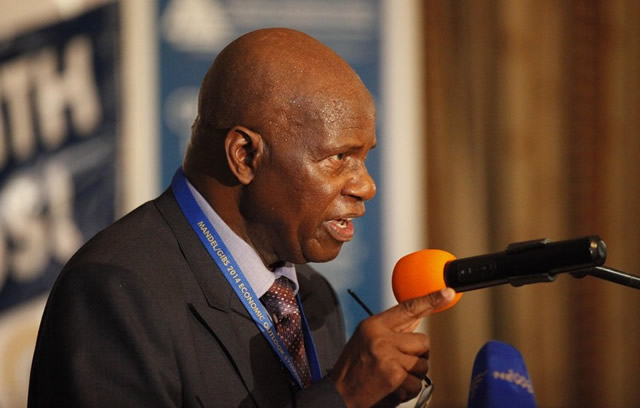Arrears stifling Zim growth: WB

Golden Sibanda Senior Business Reporter
The World Banks says Zimbabwe’s arrears with international financial institutions are stifling accelerated economic growth by limiting access to new finance.
WB senior country economist Nadia Piffaretti made the remarks at a Sapes Trust conference in her presentation “Conditions for recovery in productive sectors”.
“The external arrears continue to stifle economic growth by limiting the country’s access to new financing,” she said.
WB is one of multilateral institutions owed by Zimbabwe, which have stopped lending.
According to the Ministry of Finance and Economic Development, Zimbabwe’s external debt stood at $6,4 billion last year with over $5 billion of that amount in arrears.
Finance Minister Patrick Chinamasa told a Zimbabwe International Trade Fair in Bulawayo a fortnight ago that every financier he had approached for funding had declined citing the issue of the huge debt.
Ms Piffaretti cited challenges in the country including tightening credit conditions, high cost of capital exceeding returns, low industrial and farm productivity, vulnerable smallholder agriculture, low domestic savings and mineral dependence among others.
She said growth is weakening. However, in his 2014 budget Minister Chinamasa projected 6,1 percent growth this year. The WB contends growth will be 3 percent.
Lack of funding has stunted growth in manufacturing with the Confederation of Zimbabwe Industries estimating industrial capacity at 39,6 percent last year from an average of 44,7 percent.
WB said the 2009-2011 recovery was powered by favourable winds in the global economy but it was also imbalanced. Any imbalance sooner or later would readjust. In 2012 imbalances started to bite, while headwinds from the global economy started to blow as well.
Like many other countries across the continent, Zimbabwe relies on raw materials, which are easily susceptible to price volatility on the international markets.
There has not been much change in the structure of the economies in Africa in the last decade, with Africa still a producer of raw materials and importer of finished goods
Some dynamics are changing and the WB contends that fostering structural transformation is to be understood as a long haul task, and a longer term vision.
Ms Piffaretti called on the Government not to neglect growing domestic demand and to improve productivity of small farms and household enterprises.
She also implored that Government not to neglect important sectors such as services and to get a boost from external demand for commercial agriculture, minerals, tradable services, for instance tourism as well as to take full advantage of technological transfer, link to global value chains, and funding from FDI.
It was also critical to focus State activity on services provision, public investment and long-term management of rents, which come from exhaustible resources.
The Bretton Woods institution further emphasised the need to create linkages between mining and agriculture, sectors driven by external demand, and the manufacturing sector and services, which are driven by internal demand.










Comments